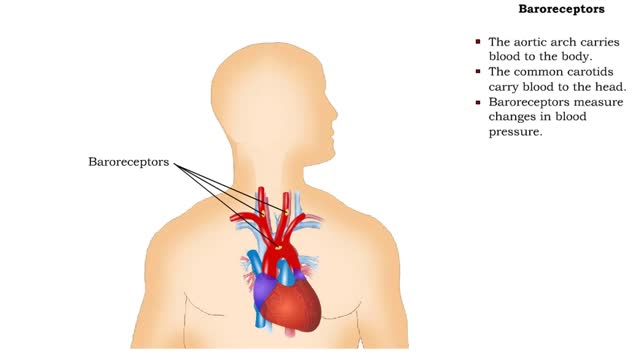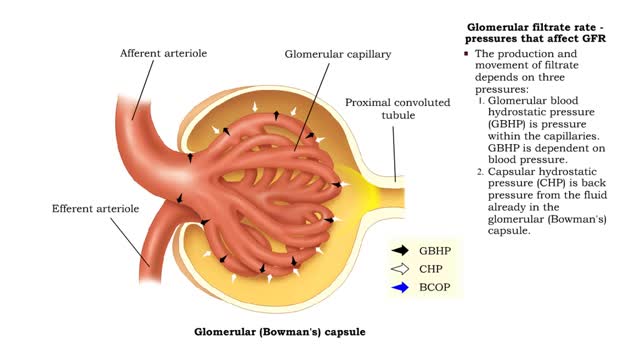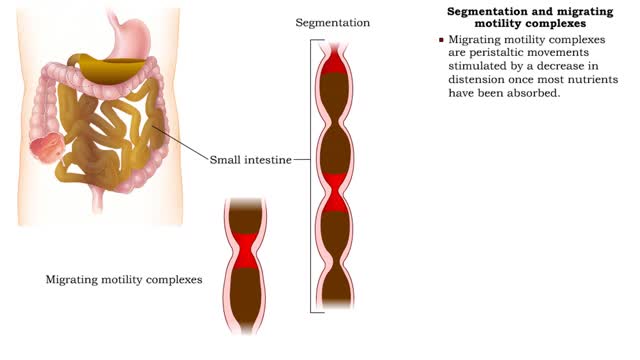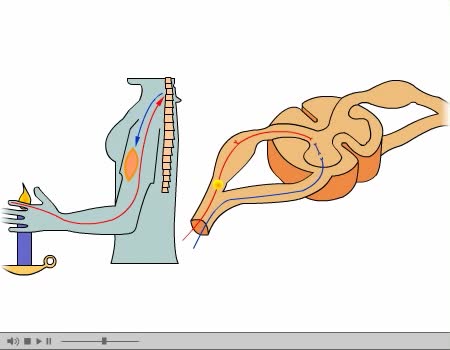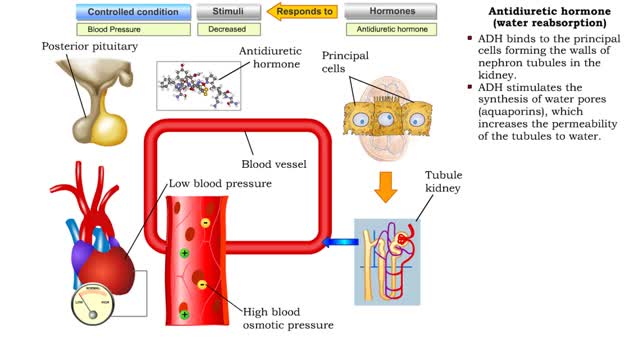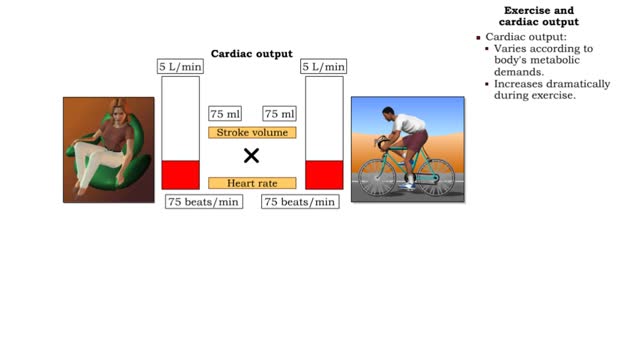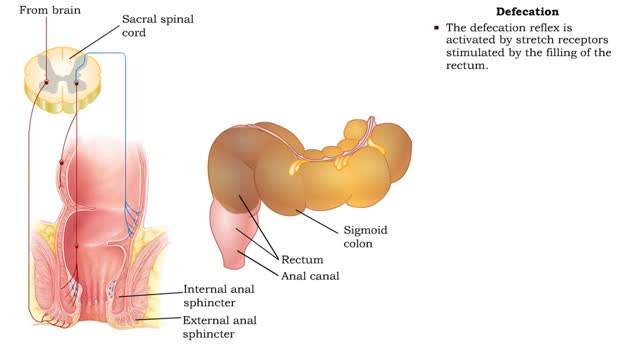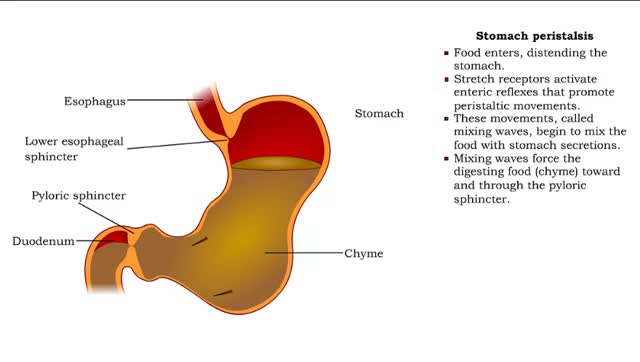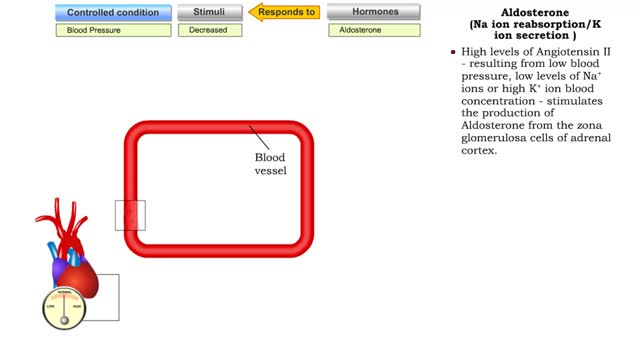Search Results
Results for: 'afferent arterioles stretch'
By: HWC, Views: 10341
A baroreceptor is a specialized nerve ending that allows your brain to sense blood flow and blood pressure in the major blood vessels of your circulatory system. • The aortic arch carries blood to the body. • The common carotids carry blood to the head. • Baroreceptors measure chang...
Glomerubular filtrate rate -pressures that affect GFR and net filtration pressure
By: HWC, Views: 11064
• The glomerular filtration rate is the amount of filtrate formed per minute within the renal corpuscle. • Once the filtrate is formed it moves down the tubule. • The production and movement of filtrate depends on three pressures: I. Glomerular blood hydrostatic pressure (GBHP) is pre...
Segmentation and migrating motility complexes & Gastroileal reflex
By: HWC, Views: 10472
• Within a few hours, most of the stomach contents are in the duodenum. • Distension of stretch receptors in the small intestine activates a reflex that stimulates segmentation, a mixing movement. • During segmentation, sections of the intestine are constricted. • This movement incr...
By: Administrator, Views: 13801
A reflex arc is a neural pathway that controls a reflex. In vertebrates, most sensory neurons do not pass directly into the brain, but synapse in the spinal cord. This allows for faster reflex actions to occur by activating spinal motor neurons without the delay of routing signals through the bra...
Antidiuretic hormone (vasoconstriction, water reabsorption & sweat inhibition)
By: HWC, Views: 10462
• Dehydration, blood loss, and low amounts of water in the blood can cause blood volume and pressure to decrease. • Neurosecretoxy cells in the posterior pituitary release antidiuretic hormone(ADH). • ADH binds to smooth muscle cells in blood vessel walls, stimulating them to vasoconstr...
Exercise and cardiac output & Definition of stroke volume
By: HWC, Views: 10595
▪ Cardiac output: • Maintains blood flow throughout the body. • Measure of blood volume ejected from the heart over a given time. • Determined by multiplying heart rate by stroke volume (CO = SV x HR). • Heart rate: Number of beats/min. • Stroke volume: Amount of blood eject...
Haustral churning, Gastrocolic reflex and mass peristalsis & Defecation
By: HWC, Views: 10907
• As the cecum becomes filled and distends, a local reflex causes: • Closure of the ileocecal valve. • Activation of haustral churning. • Haustral churning mixes the chyme, which helps absorption of water, salts, and vitamins. • Haustral churning propels the contents of the colo...
Stomach peristalsis - Movement of Food Through the Small Intestine
By: HWC, Views: 10635
Peristalsis is a series of wave-like muscle contractions that moves food to different processing stations in the digestive tract. The process of peristalsis begins in the esophagus when a bolus of food is swallowed. The strong wave-like motions of the smooth muscle in the esophagus carry the food...
Atrial natriuretic peptide (vasodilation) & Aldosterone
By: HWC, Views: 10335
• Certain situations will cause the body's stress level to rise. • increased blood pressure will stretch the atria of the heart, stimulating the secretion of atria natriuretic peptide (MP). • ANP causes muscle cells in blood vessels to relax. • Blood pressure is lowered as a result ...
Advertisement



